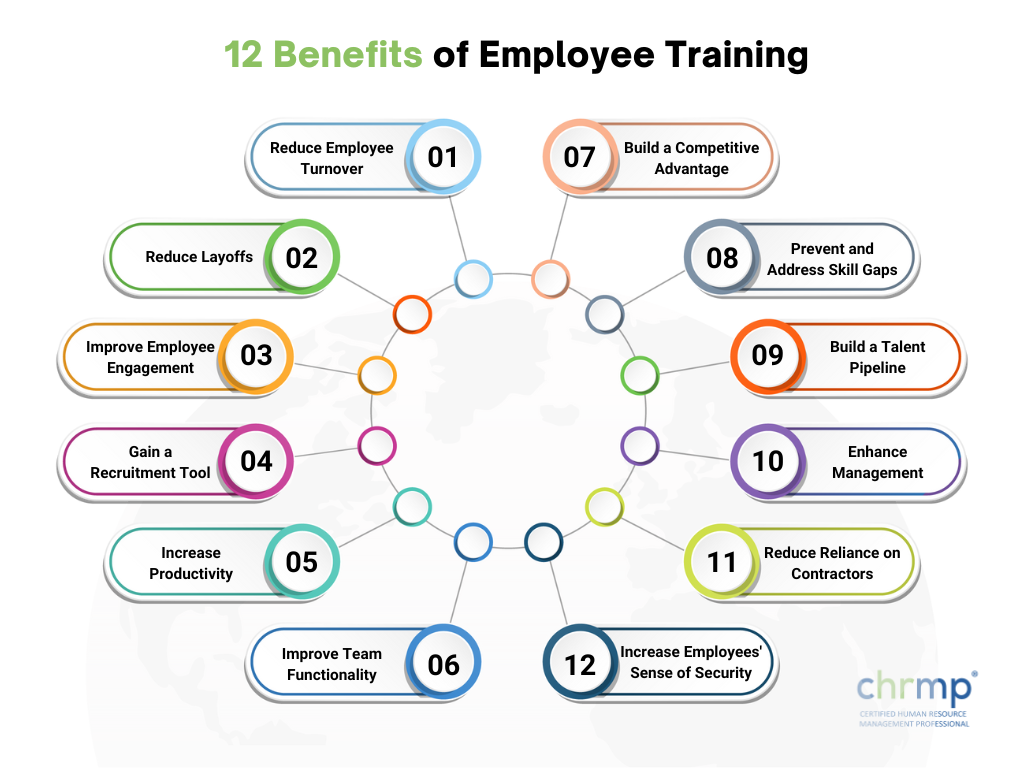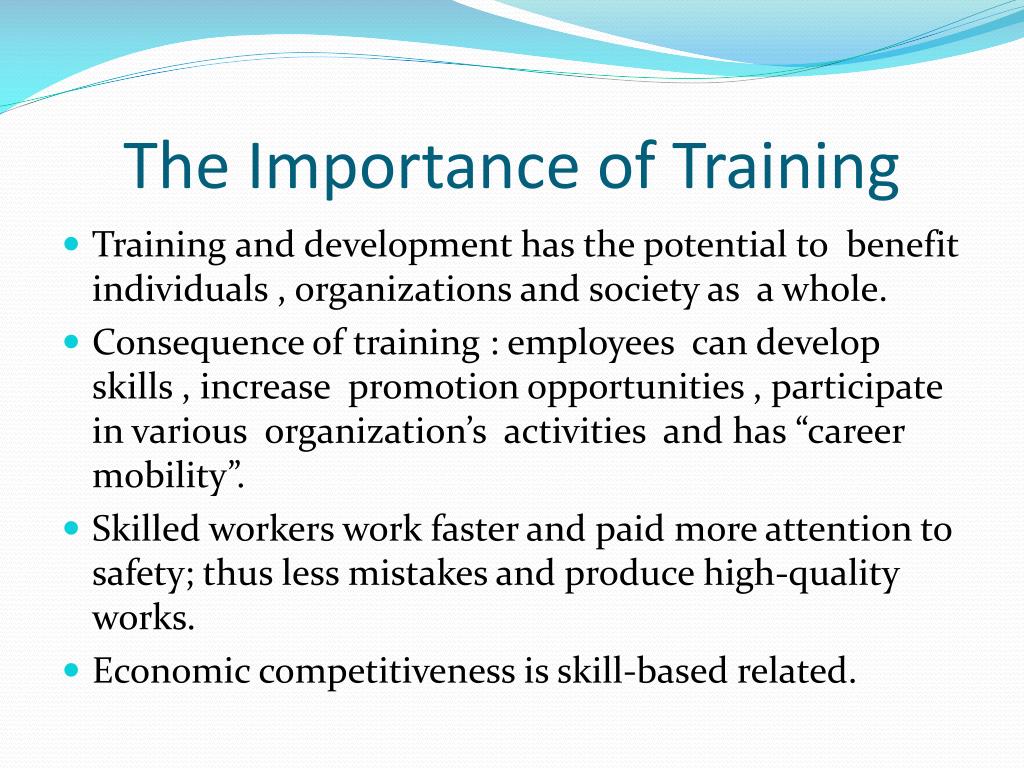
The Importance of Employee Training and Development: Unlocking Growth and Success for Your Business
In today’s fast-paced business world, the only constant is change. New technologies emerge, customer expectations evolve, and market trends shift at an unprecedented rate. To not just survive but thrive in this dynamic environment, businesses need an agile, skilled, and motivated workforce. This is where employee training and development step in – not as an optional perk, but as a critical investment for long-term success.
This comprehensive guide will explore why investing in your people’s growth is one of the smartest decisions any business, big or small, can make. We’ll break down the key benefits in an easy-to-understand way, showing you why a commitment to learning is a commitment to your company’s future.
What Exactly is Employee Training and Development?
Before we dive into the "why," let’s clarify what we mean.
-
Employee Training typically refers to the process of teaching employees specific skills or knowledge needed to perform their current job more effectively. Think of it as learning how to do a task or use a specific tool. Examples include:
- Learning new software.
- Undergoing safety procedures training.
- Training on new sales techniques.
- Understanding company policies.
-
Employee Development, on the other hand, focuses on broader skill sets and personal growth that prepare employees for future roles, challenges, and responsibilities within the company. It’s about enhancing their overall capabilities and potential. Examples include:
- Leadership training.
- Problem-solving workshops.
- Strategic thinking courses.
- Mentorship programs.
Together, training and development create a continuous learning environment where employees not only excel in their current roles but also grow into future leaders and innovators.
Why is Employee Training and Development So Important? The Core Benefits
Investing in your employees’ learning journey yields a remarkable return on investment (ROI). Let’s explore the key reasons why it’s indispensable for modern businesses.
1. Boosted Performance and Productivity
This is perhaps the most direct and tangible benefit. When employees are well-trained, they simply do their jobs better.
- Improved Skill Sets: Training ensures employees have the most up-to-date knowledge and skills required for their roles, leading to higher quality work.
- Increased Efficiency: Well-trained staff make fewer mistakes, complete tasks faster, and understand processes more thoroughly, saving time and resources.
- Enhanced Confidence: Knowing they have the necessary skills empowers employees to tackle challenges with greater self-assurance, leading to better decision-making.
- Better Problem-Solving: Development programs can equip employees with critical thinking and analytical skills, allowing them to identify and resolve issues more effectively.
Think of it this way: Would you rather have a mechanic who’s kept up with the latest car technologies or one who’s still working on carburettors? The answer is obvious for your business too!
2. Higher Employee Morale and Retention
People want to feel valued and see a future for themselves. Training and development are powerful tools for achieving this.
- Feeling Valued: When a company invests in an employee’s growth, it sends a clear message: "We believe in you, and we want you to succeed." This boosts morale significantly.
- Clear Career Paths: Development opportunities show employees that there’s a path for advancement within the company, reducing the likelihood of them looking elsewhere for growth.
- Reduced Boredom and Stagnation: Learning new things keeps work interesting and challenging, preventing employees from feeling stuck or disengaged.
- Lower Turnover Rates: Happy, engaged, and challenged employees are less likely to leave. High employee turnover is incredibly costly due to recruitment, onboarding, and lost productivity. Training helps retain your best talent.
Key takeaway: Employees who feel invested in are more loyal, productive, and committed to your company’s success.
3. Enhanced Innovation and Adaptability
The business landscape is constantly changing. Companies that can adapt quickly and innovate thrive.
- Fostering New Ideas: Training exposes employees to new concepts, technologies, and ways of thinking, sparking creativity and encouraging them to develop innovative solutions.
- Staying Current: Regular training ensures your workforce is up-to-date with industry trends, emerging technologies, and best practices.
- Managing Change Effectively: When employees are used to learning and adapting, they are better equipped to handle organizational changes, new strategies, or unforeseen challenges without significant disruption.
- Competitive Edge: A workforce that is continuously learning and innovating gives your company a significant advantage over competitors who stand still.
In essence: Training helps your business stay nimble and forward-thinking, ready to seize new opportunities.
4. Improved Customer Satisfaction
Your employees are often the face of your company. Their skills directly impact the customer experience.
- Better Product/Service Knowledge: Well-trained employees can answer customer questions accurately and confidently, providing a superior service experience.
- Enhanced Problem-Solving Skills: Employees trained in customer service and conflict resolution can handle customer complaints more effectively, turning potentially negative experiences into positive ones.
- Professionalism and Consistency: Training ensures that all employees adhere to company standards and deliver a consistent level of professional service.
- Building Customer Loyalty: When customers consistently receive excellent service from knowledgeable and helpful staff, they are more likely to become repeat customers and recommend your business to others.
Remember: Happy employees lead to happy customers.
5. Stronger Company Culture and Reputation
A commitment to training speaks volumes about your company’s values.
- Culture of Learning: It fosters an environment where continuous learning and self-improvement are valued and encouraged, creating a positive and growth-oriented culture.
- Collaboration and Teamwork: Training sessions often involve group activities, improving communication and fostering a sense of camaraderie among employees.
- Attractive Employer Brand: Companies known for investing in their employees’ growth become more attractive to top talent, making recruitment easier and more effective.
- Positive Public Image: A well-trained, professional workforce enhances your company’s reputation in the market, drawing in more business and partnerships.
Simply put: A company that invests in its people is seen as a good place to work and a good company to do business with.
6. Compliance and Risk Reduction
In many industries, specific training is not just beneficial, but legally required.
- Meeting Regulatory Requirements: Many sectors (e.g., healthcare, finance, manufacturing) have strict regulations that mandate specific training for employees (e.g., safety training, data privacy, anti-discrimination).
- Reducing Accidents and Errors: Proper training in safety procedures, equipment operation, and best practices significantly reduces the risk of workplace accidents, errors, and costly mistakes.
- Ethical Conduct: Training can reinforce ethical guidelines and company policies, minimizing the risk of misconduct, fraud, or legal issues.
Crucial point: Staying compliant protects your company from fines, lawsuits, and reputational damage.
7. Competitive Advantage and Future-Proofing Your Business
Ultimately, all these benefits culminate in a stronger, more resilient business.
- Staying Ahead of the Curve: A well-trained workforce enables your company to quickly adopt new technologies and strategies, maintaining a leading position in the market.
- Attracting and Retaining Top Talent: As mentioned, companies known for development opportunities become magnets for high-achievers.
- Long-Term Growth and Profitability: All the benefits – increased productivity, reduced turnover, innovation, customer satisfaction – directly contribute to your company’s bottom line and sustainable growth.
- Building Resilience: A skilled and adaptable workforce is better equipped to navigate economic downturns, market disruptions, and unexpected challenges, ensuring your business can weather any storm.
Making Employee Training and Development Work for Your Business
Now that you understand why it’s so important, how do you go about it? Here are some simple steps:
- Assess Your Needs: What skills are missing? What are your business goals for the next year? What do employees want to learn?
- Diverse Training Methods: Don’t just stick to lectures! Consider workshops, online courses, mentorship programs, on-the-job training, cross-training, and even e-learning modules.
- Make it Ongoing: Training isn’t a one-time event. It’s a continuous process. Regular refreshers and new opportunities are key.
- Measure the Impact: How do you know if your training is working? Track performance improvements, employee retention rates, customer feedback, and overall productivity.
- Encourage a Learning Culture: Make learning part of your company’s DNA. Celebrate achievements, share knowledge, and lead by example.
Conclusion: Invest in Your People, Invest in Your Future
The evidence is clear: employee training and development are not expenses; they are vital investments that pay dividends in productivity, innovation, morale, and ultimately, profitability. In a world that never stops evolving, your workforce must also evolve.
By committing to the growth and continuous learning of your employees, you’re not just building a more skilled team; you’re building a more resilient, adaptable, and successful business poised for long-term prosperity. Start investing in your people today, and watch your business flourish.



Post Comment